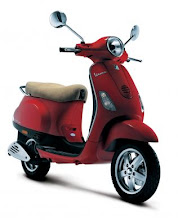
This is a short version of a news story I wanted to write but was not allowed to as the chief editor thought the topic was already everywhere else and not really of interest to our readers, and he might have been right ;-)
As I browse the news about the ”
iPad” I see that today’s headline is that the gadget has already been sold more than 2 million times since it came on the market two months ago, or 60 days to be more precise. In Europe, it’s launch came last Friday, May 28th, and at least in Madrid stocks sold out within hours. This is quite amazing, as the gadnet does not come cheap: the iPad’s most basic version costs 479,- € in Spain (499,- € in France, Italy, Germany) and 499,- USD in the States, the most complete one (with 64GB memory and 3G access) 779,- € in Spain (...) and 799,- USD.
The iPad is a tablet PC, something between a smartphone and a laptop computer. It’s LED screen has a size of 9,7 inches and you can use it by touching on the screen. The simple version can connect with the internet via a wifi red, the more advanced version can use mobile internet via a 3G red – but you need a separate service contract (that will cost you around 35 € per month if you opt for the flat rate option in Spain). The typical user of the iPad will be more of a consumer than a creator as the machine incorporates the typical Apple programs for contents consumption rather than creation - it's not a MacBook (from 979,- € in Spain). With the iPad the company also launched its own digital bookstore and wants people to read the book on the pad – though it does not offer the digital ink technology typical of other e-readers’ screens. The user can also use e-mail and administrate music, videos and fotos but the iPad does not incorporate a camera. Neither are there USB slots. It also does not support contents made with flash technology. And it can do only one thing at a time, i.e. there is no multi-tasking. These are the main points of criticism alongside the absolute control that Apple has got about what you can and what you cannot do with your machine and that it is a little difficult to type on a touchscreen. On the positive side are the iPad’s slick design, its speed in executing tasks, its low weight and the long battery life, up to 10 hours without recharging. And you can buy some accessories like a dock with a USB slot and a physical keyboard, if you like to. There are already competitors in sight: the iPed (I think, Chinese ;-)), and more seriously NVIDIA’s Tegra2.
What I personally find most suspicious is the exclusivity as to the applications one can use with it. If I had to buy a device like that right now, I would go for a far cheaper netbook and watch as Apple develops future generations of the iPad like it does of the iPhone all the time.







